| Judo at the Games of the XXXII Olympiad | |
|---|---|
 Judo pictogram for the 2020 Summer Olympics | |
| Venue | Nippon Budokan |
| Dates | 24–31 July 2021 |
| Competitors | 393, 128 from 128 nations |
| Judo at the 2020 Summer Olympics | |||
|---|---|---|---|
 | |||
| List of judoka Qualification | |||
| Men | Mixed | Women | |
| 60 kg | 48 kg | ||
| 66 kg | 52 kg | ||
| 73 kg | 57 kg | ||
| 81 kg | 63 kg | ||
| 90 kg | 70 kg | ||
| 100 kg | 78 kg | ||
| +100 kg | +78 kg | ||
| team | |||
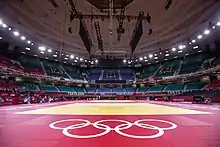
Judo at the 2020 Summer Olympics in Tokyo featured around 393, 128 judoka (柔道家: judo practitioners) competing in 15 events, seven each for both men and women as well as a new mixed team event.[1] The 2020 Summer Olympics were postponed due to the COVID-19 pandemic,[2][3] and the judo competitions were held in July 2021 at Nippon Budokan.
The tournament brackets were drawn on 23 July, with the top 8 judoka in each weight class seeded.[4][5]
Qualification
A total of 393, 128 athletes could qualify for judo at the 2020 Summer Olympics. The 2020 Olympics were postponed to 2021 due to the COVID-19 pandemic.[6] Each NOC could enter a maximum of 14 judokas (one in each division). Host nation Japan has reserved a spot in each of all 14 events, while twenty are made available to NOCs through a Tripartite Commission Invitation.
The remaining judoka underwent a qualifying process to earn a spot for the Games through the world ranking list prepared by International Judo Federation on June 28, 2021,[7][8] and finalized on 5 July.[9]
The top 18 athletes in each division directly qualify, though each NOC is subjected to a limit of 1 judoka per division. If the NOC contains more than a single athlete ranked in the top 18 of the world ranking list, the NOC can decide which of their athletes obtain the quota places.[7]
Further continental quotas (13 men and 12 women for Europe, 12 of each gender for Africa, 10 men and 11 women for Pan America, 10 of each gender for Asia, and 5 of each gender for Oceania are also available. These quotas are assigned by creating a list of all athletes for each continent across all divisions and both genders. The top-ranked athletes qualify in turn, subject to the general rule of 1 athlete per NOC per division as well as the additional rule that each NOC may only qualify one judoka through the continental quotas (that is, ensuring that 100 different NOCs are represented through this qualification system).[7]
Mixed team qualification was based on NOCs qualifying enough individual judokas across various divisions to have a six-person team meeting specific requirements (one man and one woman in each of three groups of divisions).[7]
| Gender | Day | 1 | 2 | 3 | 4 | 5 | 6 | 7 |
|---|---|---|---|---|---|---|---|---|
| Men | Weight class | 60 | 66 | 73 | 81 | 90 | 100 | +100 |
| Participants | 23 | 27 | 36 | 35 | 33 | 25 | 22 | |
| Women | Weight class | 48 | 52 | 57 | 63 | 70 | 78 | +78 |
| Participants | 28 | 29 | 25 | 31 | 28 | 24 | 27 |
Competition schedule
| Q | Elimination & Quarterfinal | F | Repechage, Semifinal, Bronze medal & Gold medal |
| Event↓/Date → | Sat 24 | Sun 25 | Mon 26 | Tue 27 | Wed 28 | Thu 29 | Fri 30 | Sat 31 | ||||||||||
|---|---|---|---|---|---|---|---|---|---|---|---|---|---|---|---|---|---|---|
| Men's | ||||||||||||||||||
| Men's 60 kg | Q | F | ||||||||||||||||
| Men's 66 kg | Q | F | ||||||||||||||||
| Men's 73 kg | Q | F | ||||||||||||||||
| Men's 81 kg | Q | F | ||||||||||||||||
| Men's 90 kg | Q | F | ||||||||||||||||
| Men's 100 kg | Q | F | ||||||||||||||||
| Men's +100 kg | Q | F | ||||||||||||||||
| Women's | ||||||||||||||||||
| Women's 48 kg | Q | F | ||||||||||||||||
| Women's 52 kg | Q | F | ||||||||||||||||
| Women's 57 kg | Q | F | ||||||||||||||||
| Women's 63 kg | Q | F | ||||||||||||||||
| Women's 70 kg | Q | F | ||||||||||||||||
| Women's 78 kg | Q | F | ||||||||||||||||
| Women's +78 kg | Q | F | ||||||||||||||||
| Mixed team | ||||||||||||||||||
| Mixed team | Q | F | ||||||||||||||||
Participating nations
 Albania (1)
Albania (1)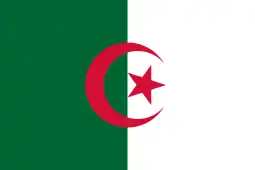 Algeria (2)
Algeria (2)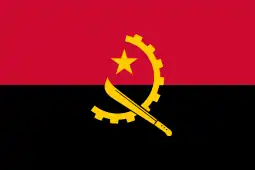 Angola (1)
Angola (1) Argentina (2)
Argentina (2)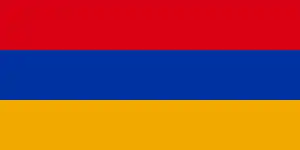 Armenia (1)
Armenia (1)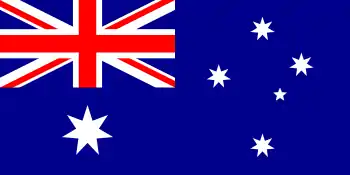 Australia (3)
Australia (3) Austria (6)
Austria (6) Azerbaijan (9)
Azerbaijan (9)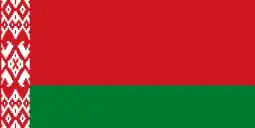 Belarus (3)
Belarus (3).svg.png.webp) Belgium (4)
Belgium (4)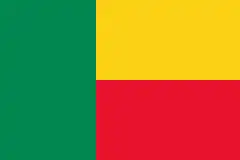 Benin (1)
Benin (1)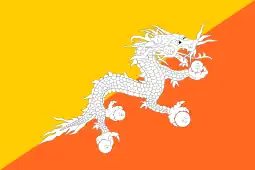 Bhutan (1)
Bhutan (1) Bosnia and Herzegovina (1)
Bosnia and Herzegovina (1) Brazil (13)
Brazil (13) Bulgaria (3)
Bulgaria (3)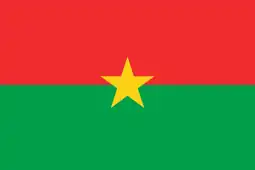 Burkina Faso (1)
Burkina Faso (1)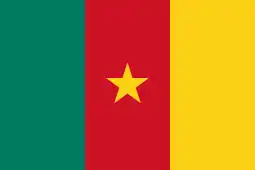 Cameroon (2)
Cameroon (2).svg.png.webp) Canada (6)
Canada (6) Cape Verde (1)
Cape Verde (1)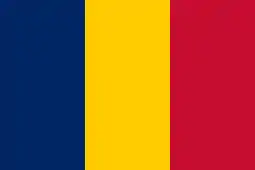 Chad (1)
Chad (1) Chile (1)
Chile (1) China (6)
China (6) Colombia (1)
Colombia (1)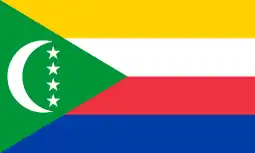 Comoros (1)
Comoros (1)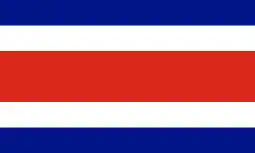 Costa Rica (1)
Costa Rica (1) Croatia (3)
Croatia (3)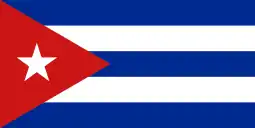 Cuba (6)
Cuba (6) Czech Republic (2)
Czech Republic (2)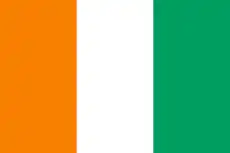 Ivory Coast (1)
Ivory Coast (1)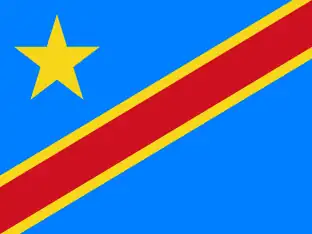 Democratic Republic of the Congo (1)
Democratic Republic of the Congo (1) Denmark (1)
Denmark (1)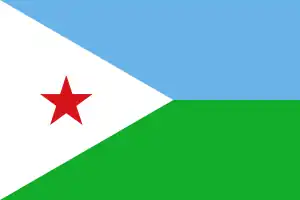 Djibouti (1)
Djibouti (1)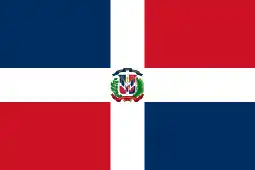 Dominican Republic (1)
Dominican Republic (1)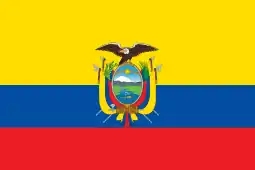 Ecuador (3)
Ecuador (3) Egypt (3)
Egypt (3) Estonia (1)
Estonia (1)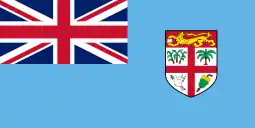 Fiji (1)
Fiji (1) France (13)
France (13)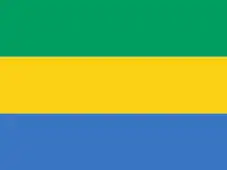 Gabon (1)
Gabon (1)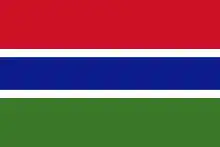 The Gambia (1)
The Gambia (1) Georgia (9)
Georgia (9) Germany (13)
Germany (13)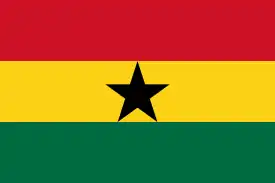 Ghana (1)
Ghana (1) Great Britain (6)
Great Britain (6) Greece (2)
Greece (2)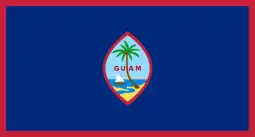 Guam (1)
Guam (1) Guatemala (1)
Guatemala (1)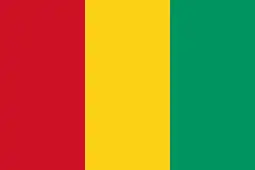 Guinea (1)
Guinea (1)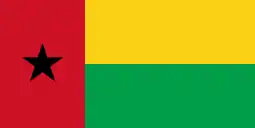 Guinea-Bissau (1)
Guinea-Bissau (1)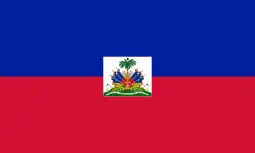 Haiti (1)
Haiti (1).svg.png.webp) Honduras (1)
Honduras (1) Hungary (7)
Hungary (7) Refugee Olympic Team (6)
Refugee Olympic Team (6) India (1)
India (1) Ireland (2)
Ireland (2) Israel (12)
Israel (12) Italy (8)
Italy (8)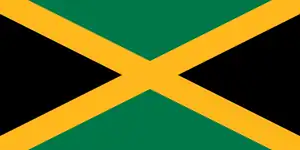 Jamaica (1)
Jamaica (1) Japan (14)
Japan (14)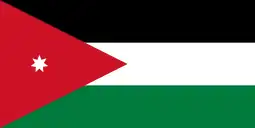 Jordan (1)
Jordan (1)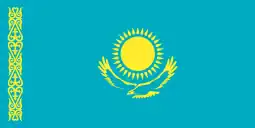 Kazakhstan (6)
Kazakhstan (6) Kiribati (1)
Kiribati (1)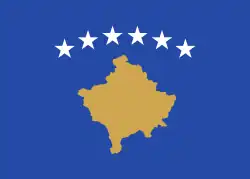 Kosovo (5)
Kosovo (5).svg.png.webp) Kyrgyzstan (1)
Kyrgyzstan (1)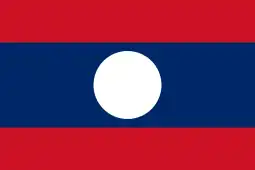 Laos (1)
Laos (1) Latvia (1)
Latvia (1)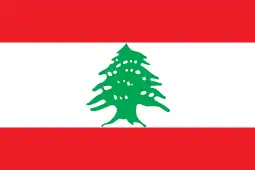 Lebanon (1)
Lebanon (1)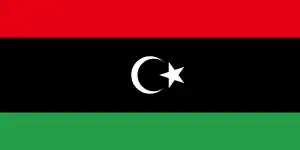 Libya (1)
Libya (1)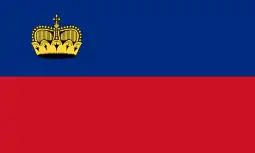 Liechtenstein (1)
Liechtenstein (1) Lithuania (1)
Lithuania (1)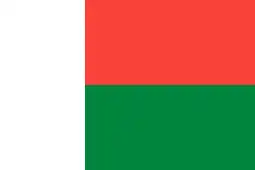 Madagascar (1)
Madagascar (1)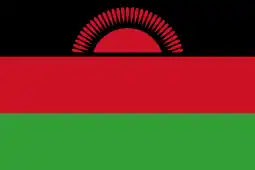 Malawi (1)
Malawi (1)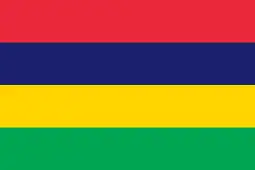 Mauritius (1)
Mauritius (1) Mexico (1)
Mexico (1)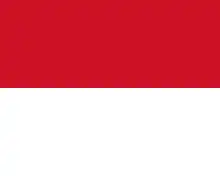 Monaco (1)
Monaco (1)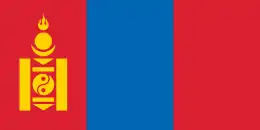 Mongolia (12)
Mongolia (12)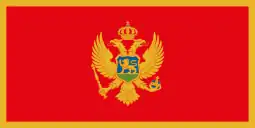 Montenegro (1)
Montenegro (1) Morocco (2)
Morocco (2)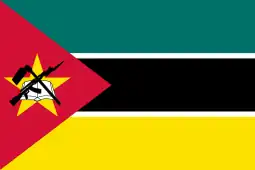 Mozambique (1)
Mozambique (1)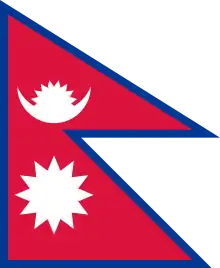 Nepal (1)
Nepal (1) Netherlands (10)
Netherlands (10) Nicaragua (1)
Nicaragua (1)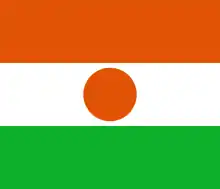 Niger (1)
Niger (1) North Macedonia (1)
North Macedonia (1)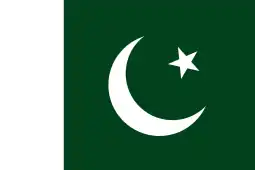 Pakistan (1)
Pakistan (1)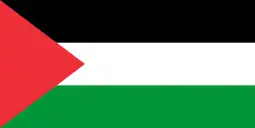 Palestine (1)
Palestine (1)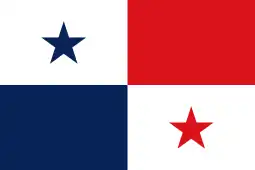 Panama (2)
Panama (2) Peru (1)
Peru (1) Philippines (1)
Philippines (1) Poland (6)
Poland (6) Portugal (8)
Portugal (8)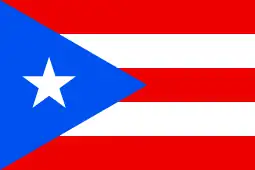 Puerto Rico (3)
Puerto Rico (3) Qatar (1)
Qatar (1) South Korea (13)
South Korea (13)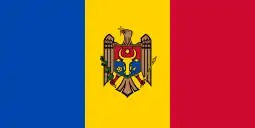 Moldova (2)
Moldova (2) Romania (3)
Romania (3) ROC (13)
ROC (13) Samoa (1)
Samoa (1)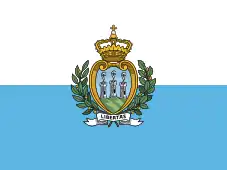 San Marino (1)
San Marino (1)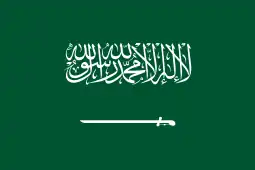 Saudi Arabia (1)
Saudi Arabia (1)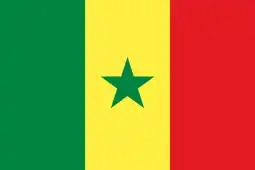 Senegal (1)
Senegal (1) Serbia (5)
Serbia (5)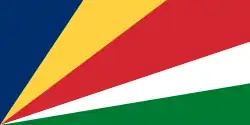 Seychelles (1)
Seychelles (1)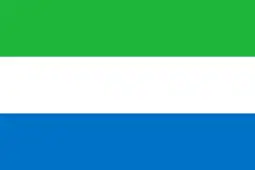 Sierra Leone (1)
Sierra Leone (1) Slovenia (5)
Slovenia (5) South Africa (1)
South Africa (1) Spain (7)
Spain (7)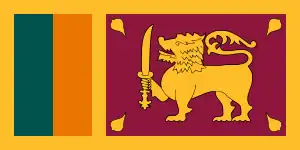 Sri Lanka (1)
Sri Lanka (1)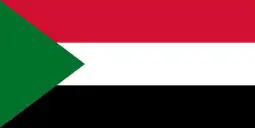 Sudan (1)
Sudan (1) Sweden (4)
Sweden (4) Switzerland (2)
Switzerland (2) Chinese Taipei (3)
Chinese Taipei (3)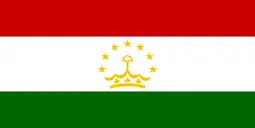 Tajikistan (4)
Tajikistan (4)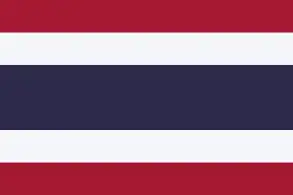 Thailand (1)
Thailand (1)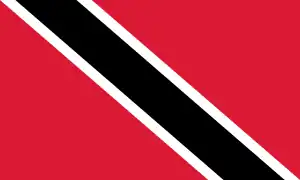 Trinidad and Tobago (1)
Trinidad and Tobago (1)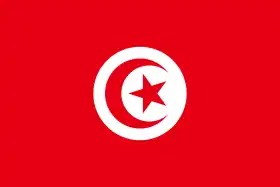 Tunisia (3)
Tunisia (3) Turkey (6)
Turkey (6)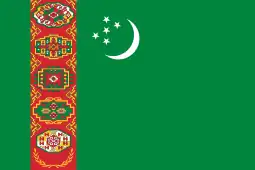 Turkmenistan (1)
Turkmenistan (1) Ukraine (7)
Ukraine (7)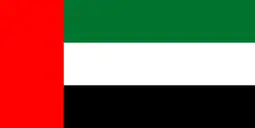 United Arab Emirates (2)
United Arab Emirates (2) United States (4)
United States (4)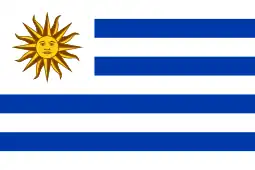 Uruguay (1)
Uruguay (1)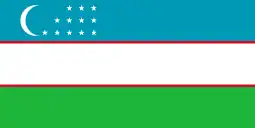 Uzbekistan (10)
Uzbekistan (10) Vanuatu (1)
Vanuatu (1).svg.png.webp) Venezuela (3)
Venezuela (3)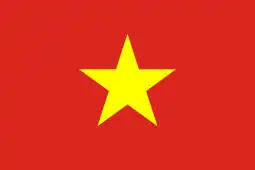 Vietnam (1)
Vietnam (1)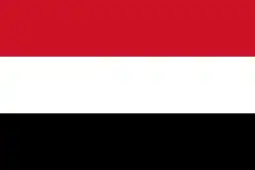 Yemen (1)
Yemen (1)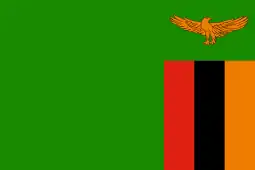 Zambia (1)
Zambia (1)
Source: [12]
Competitors
Medal summary
Medal table
* Host nation (Japan)
| Rank | NOC | Gold | Silver | Bronze | Total |
|---|---|---|---|---|---|
| 1 | 9 | 2 | 1 | 12 | |
| 2 | 2 | 3 | 3 | 8 | |
| 3 | 2 | 0 | 0 | 2 | |
| 4 | 1 | 3 | 0 | 4 | |
| 5 | 1 | 0 | 0 | 1 | |
| 6 | 0 | 1 | 2 | 3 | |
| 0 | 1 | 2 | 3 | ||
| 0 | 1 | 2 | 3 | ||
| 9 | 0 | 1 | 1 | 2 | |
| 10 | 0 | 1 | 0 | 1 | |
| 0 | 1 | 0 | 1 | ||
| 0 | 1 | 0 | 1 | ||
| 13 | 0 | 0 | 3 | 3 | |
| 14 | 0 | 0 | 2 | 2 | |
| 0 | 0 | 2 | 2 | ||
| 0 | 0 | 2 | 2 | ||
| 17 | 0 | 0 | 1 | 1 | |
| 0 | 0 | 1 | 1 | ||
| 0 | 0 | 1 | 1 | ||
| 0 | 0 | 1 | 1 | ||
| 0 | 0 | 1 | 1 | ||
| 0 | 0 | 1 | 1 | ||
| 0 | 0 | 1 | 1 | ||
| 0 | 0 | 1 | 1 | ||
| 0 | 0 | 1 | 1 | ||
| 0 | 0 | 1 | 1 | ||
| Totals (26 entries) | 15 | 15 | 30 | 60 | |
Men's events
| Games | Gold | Silver | Bronze |
|---|---|---|---|
| Extra-lightweight (60 kg) |
Naohisa Takato |
Yang Yung-wei |
Yeldos Smetov |
| Luka Mkheidze | |||
| Half-lightweight (66 kg) |
Hifumi Abe |
Vazha Margvelashvili |
An Ba-ul |
| Daniel Cargnin | |||
| Lightweight (73 kg) |
Shohei Ono |
Lasha Shavdatuashvili |
An Chang-rim |
| Tsend-Ochiryn Tsogtbaatar | |||
| Half-middleweight (81 kg) |
Takanori Nagase |
Saeid Mollaei |
Shamil Borchashvili |
| Matthias Casse | |||
| Middleweight (90 kg) |
Lasha Bekauri |
Eduard Trippel |
Davlat Bobonov |
| Krisztián Tóth | |||
| Half-heavyweight (100 kg) |
Aaron Wolf |
Cho Gu-ham |
Jorge Fonseca |
| Niyaz Ilyasov | |||
| Heavyweight (+100 kg) |
Lukáš Krpálek |
Guram Tushishvili |
Teddy Riner |
| Tamerlan Bashaev |
Women's events
| Games | Gold | Silver | Bronze |
|---|---|---|---|
| Extra-lightweight (48 kg) |
Distria Krasniqi |
Funa Tonaki |
Daria Bilodid |
| Mönkhbatyn Urantsetseg | |||
| Half-lightweight (52 kg) |
Uta Abe |
Amandine Buchard |
Odette Giuffrida |
| Chelsie Giles | |||
| Lightweight (57 kg) |
Nora Gjakova |
Sarah-Léonie Cysique |
Jessica Klimkait |
| Tsukasa Yoshida | |||
| Half-middleweight (63 kg) |
Clarisse Agbegnenou |
Tina Trstenjak |
Maria Centracchio |
| Catherine Beauchemin-Pinard | |||
| Middleweight (70 kg) |
Chizuru Arai |
Michaela Polleres |
Madina Taimazova |
| Sanne van Dijke | |||
| Half-heavyweight (78 kg) |
Shori Hamada |
Madeleine Malonga |
Anna-Maria Wagner |
| Mayra Aguiar | |||
| Heavyweight (+78 kg) |
Akira Sone |
Idalys Ortiz |
Iryna Kindzerska |
| Romane Dicko |
Mixed events
New rules
Judo, the sports first introduced in 1964 Tokyo Olympics, has changed and evolved over time. There were several rule changes made to empower this sports in the 2020 Summer Olympics.
Based on the 2016 IJF Judo rule changes, the game time for men has shortened one minute and the length of a game became four minutes which is the same as women's game. There was also a change in scores of a Waza-Ari, a technic that requires a judoka to pin his/her opponent for 10 to 20 seconds or to throw the opponent successfully but not well-controlled to be awarded as Ippon. As basic Judo rules, there are three ways to win: 1)to throw the opponent to the ground in a certain efficiency, 2) to hold down the opponent for 20 seconds, 3) to force the opponent to submission by arm lock or strangulation. Originally, gaining points of Ippon ended the game but now Waza-aris are awarded equally to Ippons in the 2020 summer Olympics. With this rule change, penalty scores no longer ended the game.[5] In addition, the mixed team competition was added as a new content of Judo games in the Olympics. Six individuals in their national mixed team compete with individuals of the same weight category from another national team. A team wins when it won at least four rounds of six. This new content aims to engage in gender equality as well as a union through sport.[14]
In addition, the mixed team competition was added as a new content of Judo games in the Olympics. Six individuals in their national mixed team compete with individuals of the same weight category from another national team. A team wins when it won at least four rounds of six. This new content aims to engage in gender equality as well as a union through sport. It is considered one of the most gender equal competition in Olympic games[15] France, the next summer olympic host country, became the very first team to gain a gold medal for this new competition of mixed teams. It defeated Japan with 4-1. This was considered as a memorable moment of judo games in the 2020 Summer Olympics.[16]
Politically motivated withdrawal
Selected to compete at the 2020 Summer Games in the -73 kg weight class, Algerian judoka Fethi Nourine and his coach Amar Benikhlef announced his withdrawal following the conclusion of the draw of competitors.
Nourine was quoted as saying his political support for the Palestinian cause made it impossible for him to compete against an Israeli; Tohar Butbul, the #5 seed in the tournament, whom he was drawn to potentially face in the second round (had he won in the first round), was Israeli.[17][18][19][20]
The International Judo Federation (IJF) announced the immediate suspension of Nourine and his coach on 24 July 2021, pending a further investigation, while the Algerian Olympic Committee revoked their accreditation, and sent Nourine and his coach back home to Algeria.[21][22] The Federation explained:
"According to the IJF rules, in line with the Olympic Charter and especially with rule 50.2 that provides for the protection of the neutrality of sport at the Olympic Games and the neutrality of the Games themselves, which states that 'no kind of demonstration or political, religious or racial propaganda is permitted in any Olympic sites, venues or other areas,' Fethi Nourine and Amar Benikhlef are now suspended and will face a decision by the IJF Disciplinary Commission, as well as disciplinary sanctions by the National Olympic Committee of Algeria back in their country.'"[20]
See also
References
- ↑ "Tokyo 2020: Judo". Retrieved 13 July 2018.
- ↑ "IOC, IPC, Tokyo 2020 Organising Committee and Tokyo Metropolitan Government Announce New Dates for the Olympic and Paralympic Games Tokyo 2020". olympic.org. IOC. 30 March 2020. Archived from the original on 30 March 2020. Retrieved 30 March 2020.
- ↑ "IOC, IPC, Tokyo 2020 Organising Committee and Tokyo Metropolitan Government announce new dates for the Olympic and Paralympic Games Tokyo 2020 - Olympic News". International Olympic Committee. 15 July 2021. Retrieved 10 October 2021.
- ↑ Lasuen, Pedro (5 July 2021). "Olympic Qualification Final List". International Judo Federation. Retrieved 6 July 2021.
- 1 2 "Judo | Olympic Sport". Tokyo 2020. Archived from the original on 3 July 2021. Retrieved 10 October 2021.
- ↑ "Joint Statement from the International Olympic Committee and the Tokyo 2020 Organising Committee". IOC. 24 March 2020. Retrieved 15 April 2022.
- 1 2 3 4 "Tokyo 2020 – IJF Qualification System" (PDF). International Judo Federation. 12 May 2020. Archived from the original (PDF) on 22 June 2020. Retrieved 23 August 2022.
- ↑ "IJF Olympic Qualification List" (PDF). International Judo Federation. Archived from the original (PDF) on 23 June 2021. Retrieved 23 August 2022.
- ↑ Messner, Nicolas (28 June 2021). "The Day of Reckoning Has Come". International Judo Federation. Archived from the original on 28 June 2021. Retrieved 23 August 2022.
- ↑ "Schedule - Judo Tokyo 2020 Olympics". Olympian Database. Retrieved 8 March 2020.
- ↑ "Judo Competition Schedule". Tokyo 2020. 23 April 2018. Retrieved 8 March 2020.
- ↑ "Olympic Games Tokyo 2020 — Nations". International Judo Federation. Retrieved 6 July 2021.
- ↑ "France become first judo mixed team gold medallist". Tokyo 2020. Archived from the original on 10 October 2021. Retrieved 10 October 2021.
- ↑ "What is the new judo mixed team event?". Tokyo 2020. Archived from the original on 2 August 2021. Retrieved 30 September 2021.
- ↑ "What is the new judo mixed team event?". Tokyo 2020. Archived from the original on 2 August 2021. Retrieved 30 September 2021.
- ↑ "France become first judo mixed team gold medallist". Tokyo 2020. Archived from the original on 10 October 2021. Retrieved 10 October 2021.
- ↑ "Judo athlete sent home from Olympics after refusing to fight Israeli".
- ↑ "Algerian judoka sent home from Olympics after refusing to face Israeli opponent". Metro. 24 July 2021.
- ↑ "Algerian judoka sent home from Olympics after refusing to compete against Israeli". The Guardian. 24 July 2021.
- 1 2 "Algerian judoka suspended after quitting Olympics rather than facing Israeli opponent". Yahoo.
- ↑ "Algerian judoka Fethi Nourine suspended and sent home for withdrawing to avoid Israeli". The Japan Times. 24 July 2021.
- ↑ "Fethi Nourine and Amar Benikhlef: Disciplinary Sanctions". International Judo Federation.
External links
- judo at the 2020 Summer Olympics at the International Judo Federation
- judo at the 2020 Summer Olympics at JudoInside.com
- judo at the 2020 Summer Olympics at the European Judo Union
- Results Book Archived 1 August 2021 at the Wayback Machine